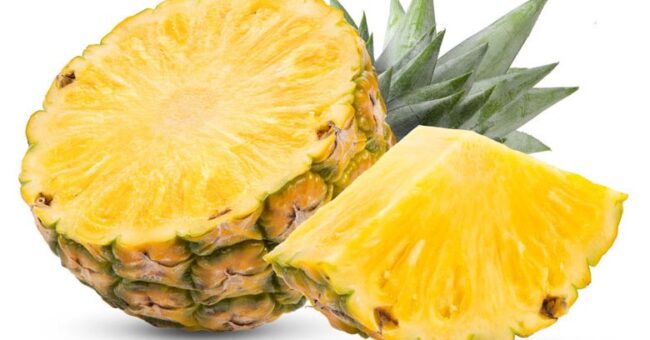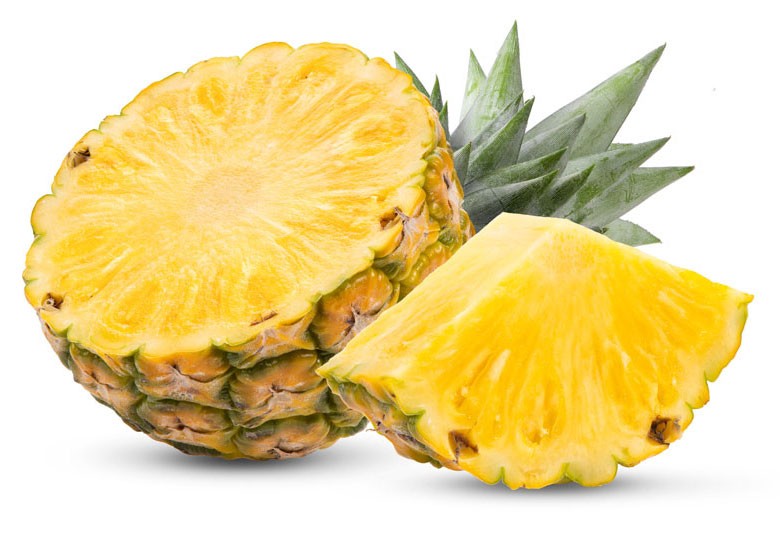
Welcome, fellow feline enthusiasts! Today, we’re diving into an interesting topic – can cats eat pineapple?
You might have noticed your furball’s curiosity when you’re enjoying this juicy tropical fruit, and it’s natural to wonder if it’s safe to share a nibble with them.
In this blog post, we’ll explore the world of cat nutrition, focusing on their unique dietary needs as obligate carnivores, and whether or not pineapple can be a part of their diet.
We will walk you through the nutritional composition of pineapple, its potential health benefits and risks for our feline friends, and share some tips on how to offer pineapple safely.
So, let’s get started on this fascinating journey to ensure your cat’s diet is not only delicious but also nutritious!
Can Cats Eat Pineapple?
The moment of truth: can cats eat pineapple? The short answer is yes, but with some caveats.
While pineapple is not toxic to cats, it doesn’t offer significant nutritional benefits to them, given their obligate carnivore nature.
Their dietary needs are primarily met by consuming animal-based proteins, fats, and specific vitamins and minerals.
Pineapple does contain some fiber and water content, which could potentially aid in digestion.
However, the high sugar content in pineapple may not be ideal for cats, as their bodies are not designed to process large amounts of sugar.
Over time, excessive sugar consumption could lead to health issues, such as obesity or diabetes.
Additionally, the bromelain enzyme in pineapple, which has anti-inflammatory properties for humans, might not have the same effect on cats due to their unique physiology.
In conclusion, while cats can technically eat pineapple, it should be considered an occasional treat rather than a staple in their diet.
The key is moderation, ensuring that the majority of their nutritional needs are met through a balanced, species-appropriate diet.
In the next sections, we’ll explore the potential health benefits, risks, and safe ways to offer pineapple to your feline friend.
Nutritional Composition of Pineapple

Pineapple is a tropical delight we humans enjoy for its sweet taste and numerous health benefits.
But what exactly makes pineapple so nutritious? Let’s take a closer look.
Pineapples are packed with vitamins, minerals, and antioxidants. Vitamin C, for example, is found in abundance, making it great for our immune systems.
Manganese, essential for bone health and metabolism, is also present. Other noteworthy nutrients include vitamin A, potassium, calcium, and dietary fiber.
But wait, there’s more! Pineapples are rich in bromelain, a unique enzyme with anti-inflammatory properties, often praised for its potential to aid digestion and reduce inflammation.
|
Nutrient |
Amount per 100g of Raw Pineapple |
|
Energy |
50kcal |
|
Water |
86g |
|
Protein |
0.12g |
|
Carbohydrates |
13.12g |
|
Sugars |
9.85g |
|
Calcium |
13mg |
|
Vitamin C |
47.8mg |
Cats’ Dietary Needs
As cat lovers, our feline friends’ well-being is of the utmost importance.
To keep them healthy, we must understand their unique dietary needs. So, what exactly do cats require to thrive?
Firstly, let’s establish that cats are obligate carnivores.
This means they have evolved to primarily consume animal-based proteins, which provide essential nutrients their bodies cannot produce or synthesize in sufficient amounts.
Proteins, fats, and amino acids take center stage in a cat’s diet.
High-quality animal proteins contain vital amino acids like taurine, arginine, and methionine.
Taurine, in particular, plays a crucial role in maintaining feline heart, eye, and reproductive health.
A taurine deficiency can lead to severe health complications.
Fats are also vital for cats, providing energy and supporting their nervous system.
Omega-3 and omega-6 fatty acids contribute to healthy skin, fur, and immune function.
As for carbohydrates, cats have a limited ability to process them. Their diet should consist of minimal carbs, focusing on high-quality proteins and fats instead.
Lastly, cats require specific vitamins and minerals found in animal-based sources.
These include vitamin A, vitamin D, and certain B vitamins that they can’t obtain from plant-based sources in the right forms or amounts.
Potential Health Benefits of Pineapple for Cats

You might be wondering, if cats can eat pineapple, what potential benefits could they glean from this fruit?
While the nutritional merits of pineapple for cats are relatively minor compared to their primary dietary needs, there are a few aspects worth noting.
Firstly, pineapple’s water content might be of slight benefit.
Proper hydration is important for cats, especially those who primarily consume dry food.
A small bite of pineapple could provide additional water, albeit minimally.
Secondly, the fiber content in pineapple could potentially aid in digestion, helping with hairball management.
However, remember that this should not replace a cat’s regular diet or hairball control methods.
Lastly, the bromelain enzyme in pineapple, known for its anti-inflammatory and digestive benefits in humans, is still a bit of a mystery when it comes to cats.
While it could potentially provide some digestive benefits, more research is needed to substantiate this.
It’s important to remember that while these potential benefits exist, they are minor and cannot replace the nutrients cats require from their regular diet.
Pineapple is far from being a superfood for our feline companions.
Potential Risks of Feeding Pineapple to Cats
As with any human food we consider offering to our feline companions, it’s essential to consider the potential risks.
Despite its nutritional composition, pineapple isn’t without certain hazards for cats.
High Sugar Content
At the forefront is pineapple’s high sugar content. Remember, cats aren’t built to metabolize a lot of sugar.
Too much can lead to obesity and even diabetes over time.
A few small bites now and then probably won’t cause harm, but frequent or large servings could be detrimental.
Chocking Hazard
Next, the texture of pineapple might pose a choking hazard.
The hard, fibrous nature of this fruit can be tough for cats to chew properly, potentially leading to choking or gastrointestinal blockage.
Gastrointestinal Upset
Moreover, some cats may experience gastrointestinal upset after eating pineapple.
This can manifest as vomiting, diarrhea, or discomfort. It’s not uncommon for cats to have this reaction when they consume something outside their typical diet.
Allergic Reaction
Lastly, though rare, some cats could be allergic to pineapple.
If you notice any signs of an allergic reaction, such as swelling, excessive itching, difficulty breathing, or other behavioral changes, stop feeding pineapple and consult your vet immediately.
In a nutshell, while cats can technically eat pineapple, it isn’t without risks.
The key is to proceed with caution, using pineapple only as an occasional treat and always keeping a watchful eye on your cat’s reaction.
Safe Ways to Offer Pineapple to Cats
Should you choose to offer pineapple to your feline friend, there are a few guidelines to follow to ensure it’s done safely.
Remember, our goal is to make this a pleasant, risk-free experience for your cat.
How Much Pineapple Can I Give To My Cat?
First and foremost, moderation is key.
Only offer a small amount of pineapple to your cat – a few small bites, once per week at most.
This keeps the sugar intake minimal and reduces the risk of choking or digestive discomfort.
How To Prepare Pineapple For A Cat
Next, preparation matters. Here’s how to safely prepare pineapple before feeding it to your cat.
- Remove the tough outer skin and core, as these could pose choking hazards.
- Then, cut the pineapple into small, bite-sized pieces that your cat can easily manage.
Never give your cat canned pineapple or pineapple soaked in syrup.
These products often contain extra sugar, which is not healthy for your feline friend. Always opt for fresh, raw pineapple when possible.
Introduce pineapple slowly and monitor your cat’s reaction closely.
Look for signs of gastrointestinal upset or an allergic reaction. If you see any adverse reactions, stop offering pineapple and consult your vet.
Always keep in mind that pineapple, or any fruit, should never replace your cat’s regular diet.
It can be a fun and interesting treat, but it does not provide the essential nutrients found in a balanced, meat-based cat diet.
Alternatives to Pineapple for Cats
Perhaps your feline friend turned up their nose at pineapple, or you’ve decided it’s not the best fit for them.
Fear not! There are plenty of alternatives to consider, all suited to a cat’s dietary preferences and needs.
One option is to offer cat-friendly veggies, like cooked pumpkin or peas, in small amounts.
These foods provide some fiber and hydration, similar to pineapple, but with less sugar.
Another option is to provide high-quality, protein-rich treats designed specifically for cats.
These often come fortified with essential nutrients, like taurine, that a cat’s diet requires.
Remember to follow the guidelines for treat consumption – usually no more than 10% of a cat’s daily caloric intake.
Some cats may enjoy a small amount of cooked fish or meat as a treat.
This aligns more closely with their carnivorous diet and can provide beneficial nutrients.
Be sure to offer only cooked, unseasoned meats and avoid anything that could pose a choking hazard.
Ultimately, your cat’s regular diet should provide all the nutrients they need.
Treats, whether they’re pineapple, other fruits, veggies, or meat, should be an occasional indulgence, not a dietary staple.
Can Cats Eat Pineapple Conclusion
We’ve journeyed through the land of feline nutrition and pineapple, and it’s been a fascinating exploration.
Can cats can eat pineapple? It’s more of an occasional delicacy than a must-have dietary supplement.
Cats, as obligate carnivores, rely heavily on animal-based proteins and fats.
Fruits like pineapple don’t offer the essential nutrients they require but could serve as an occasional treat in minimal amounts.
When deciding to introduce any human food into your cat’s diet, it’s crucial to prioritize their health and dietary needs over curiosity or novelty.
If you opt to let your furry friend sample this tropical fruit, remember to offer it sparingly, and always under close supervision.
Prepared correctly and served in moderation, pineapple can be a safe and fun treat for some cats.
However, if you have any doubts or concerns, it’s always a wise move to consult your vet.
They know your cat’s health history and can provide personalized advice.
By focusing on providing a balanced, species-appropriate diet and treating them with love and care, you’re sure to keep your feline friend purring happily.
The post Can Cats Eat Pineapple? appeared first on Caredicat | Cat care, tips, reviews, & everything cats.